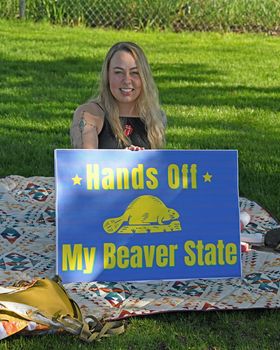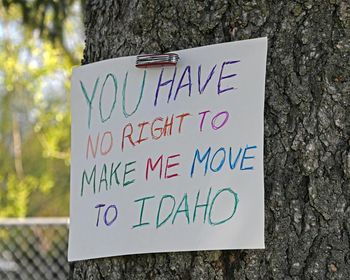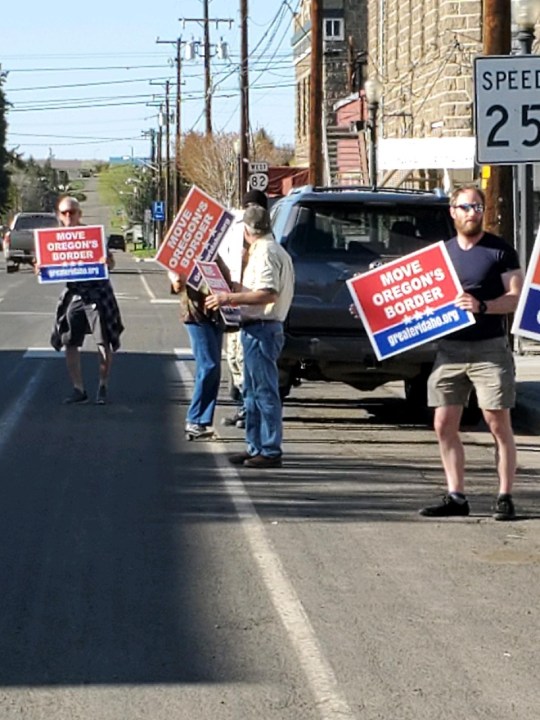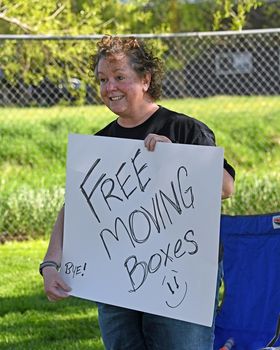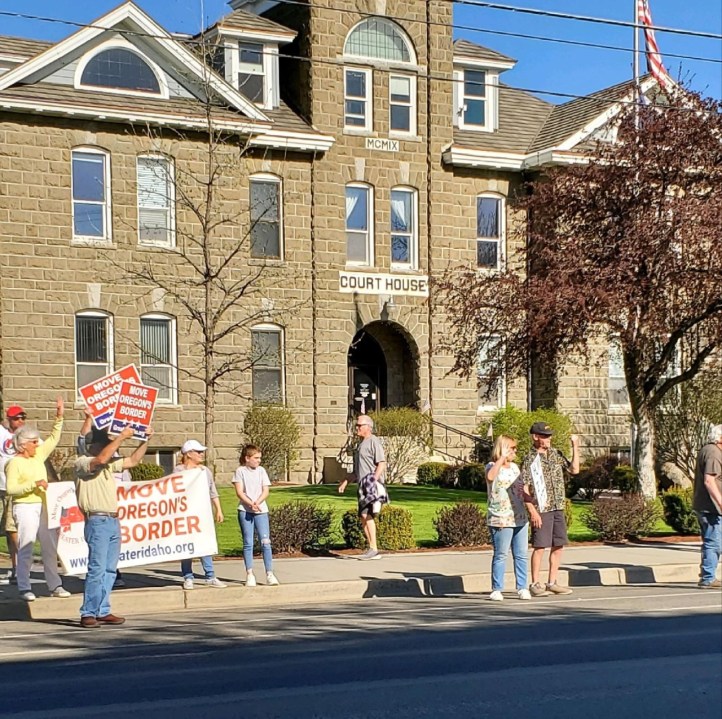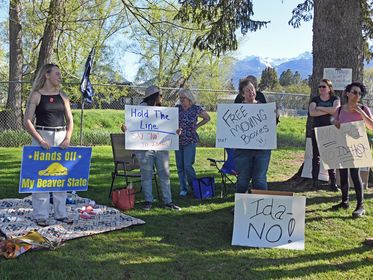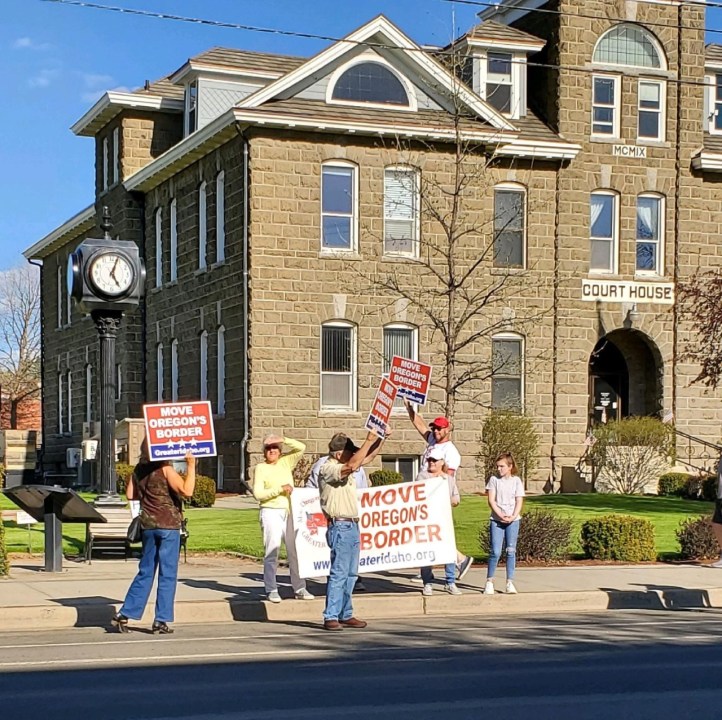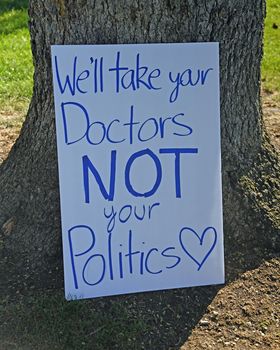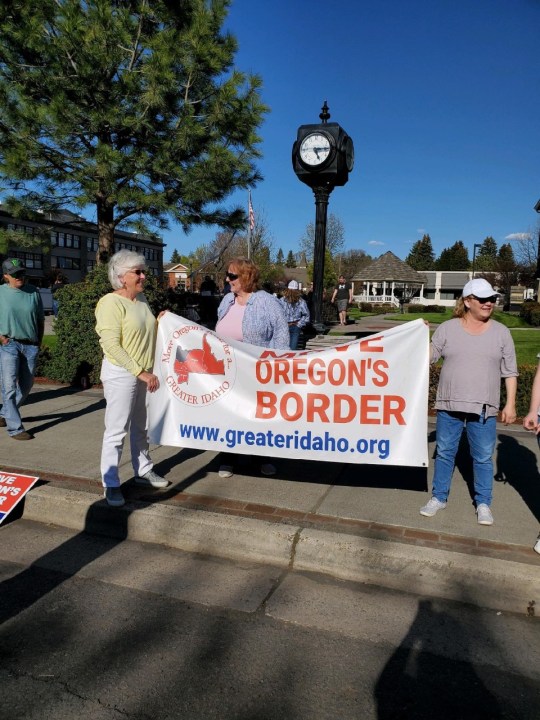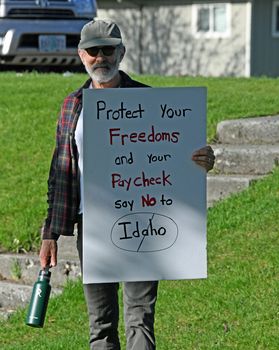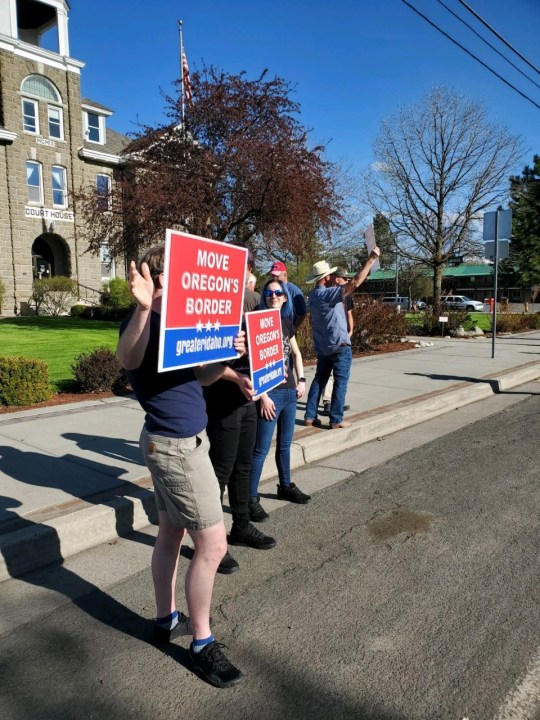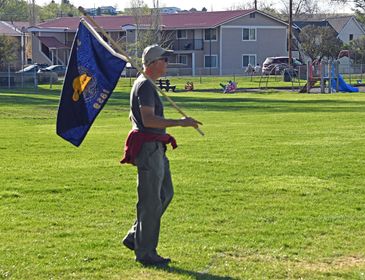PORTLAND, Ore. (KOIN) — Wallowa County residents for and against the “Greater Idaho” movement held opposing rallies near the county courthouse in Enterprise on May 12, days before local voters will decide on measure 32-007.
If passed, the county will become the 12th in Eastern Oregon to express popular support for leaving the more-liberal state of Oregon to become part of the Republican-led state of Idaho. Photos of Friday evening’s protests show that 40 to 50 people gathered between the two groups to rally for their sides.
A representative with the political group Rural Oregonians for Oregon told KOIN 6 News that they received positive feedback from passersby as they waved signs from Enterprise City Park with phrases like: “Free moving boxes,” “Ida-no!’ and “hands off my Beaver State.”
“The Say No to Idaho [event] was a great success,” Rural Oregonians for Oregon said. “We had locals stopping by to show support, make and display signs and enjoy homemade pie and conversation with one another. We look forward to future gatherings and we will continue to show our Wallowa County neighbors that coming together to solve our communities’ problems will be change we all wish to see in rural Oregon policy making.”
Organizers with the “Greater Idaho” protest, meanwhile, said that their rally, which was held down the block on the steps of the Wallowa County Courthouse, had a larger turnout. Unlike Rural Oregonians for Oregon protesters, who held unique handmade signs, “Greater Idaho” supporters waved more uniform signage stating: “Move Oregon’s border.”
Despite the small scale of the protest, the local newspaper the Wallowa County Chieftain reported that the opposing protests drew attention from international news outlets like Agence France-Presse, which was on scene to cover the divided community.
Completed ballots for the special election must be submitted to a ballot box or postmarked by May 16. Local vote information is available at the Wallowa County Clerk’s office elections page. While the “Greater Idaho” movement has gained momentum in Eastern Oregon and Idaho, where state lawmakers have pushed for further “Greater Idaho” discussions, it remains unclear how the proposed border change would actually occur.


